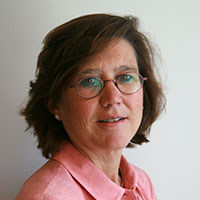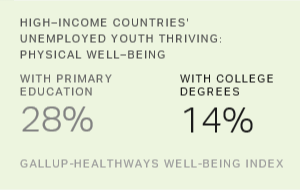
A Conversation With Dr. Carol Graham
Leading expert and author on the economics of happiness and development economics
You've been studying and writing about subjective wellbeing and happiness for almost two decades. What drew you to the subject in the first place?
Graham: I fell into the study of wellbeing and happiness in the early 2000s, as I was studying inequality and mobility in Peru and in other developing countries. I wanted to know what people thought about their progress out of poverty, which had been substantial.
My results surprised me, as I found that over half of the people with the most upward mobility reported being unhappy or very unhappy with their situation. I then found those results in several other countries beyond Peru. I called my results "happy peasants and frustrated achievers," a term that has stuck in the literature. Some of what I found was due to rising expectations and aspirations, some to new awareness of inequality, and some was due to character traits.
In trying to explain these results, I was lucky to be able to get the advice -- and then join -- the small group of economists and psychologists collaborating in the then-nascent study of wellbeing: Richard Easterlin, Andrew Oswald, Danny Kahneman, George Akerlof and Ed Diener, among others.
Once I realized the range and depth of questions that we could explore, I never turned back. The wellbeing lens has given me a whole new way to think about and at times answer questions related to my original interests: poverty, inequality and public health. The two fields go hand in hand.
In my view, some of the most interesting work is under the frame of what wellbeing causes. I published the first economics paper on this topic in 2004, with Andrew Eggers and Sandip Sukhtankar. At the time, it got little attention, but now that much work has confirmed that people with higher levels of wellbeing do better in the income, health and social arenas, people have come back around to reading it!
One of the most interesting areas the field is going in, meanwhile, is in understanding the intersect between innate character traits and genes on the one hand, and the environment that people have to navigate, in determining wellbeing and related outcomes.
What has been your single biggest surprise along the way?
Graham: My biggest surprise is how the field went so quickly from being on the fringes of economics to a virtual explosion of academic papers in economics and many other social sciences, and also into the policy arena, with governments around the world using these metrics in their statistics, in cost-benefit analysis and in a range of local-level interventions to increase wellbeing.
Had you asked me if this was possible in the year 2002, for example, I would have said it was a crazy proposition!
What are you investigating now?
Graham: I am, sadly, investigating how low levels of wellbeing track with the deaths of despair and other signs of desperation in the U.S., at the level of individuals, races and places. The same places and people who are in places where jobs have hollowed out and where there are high levels of opioid [overdose deaths], suicides and other related premature deaths report no hope for the future and high levels of worry.
While depressing, my work with Sergio Pinto finds that the robust matches between these markers suggest that wellbeing metrics could serve as a good tracking tool. My work with Kelsey O'Connor shows that the ill-being among these same cohorts -- drops in optimism, in particular -- far predate the deaths of despair. This is an example of how wellbeing metrics could have served as warning indicators well before the deaths of despair became a crisis of national and irreversible proportions.
Where do you stand on the utility of GDP as a measurement of development?
Graham: I think GDP is a tried-and-true measure of economic production and growth that is comparable across countries and time. It has its flaws, though, particularly in terms of what it does not measure (quality of life, for example) and what it mismeasures (environmental damage, for example). Wellbeing metrics can and should serve as a complement to the standard-based income measures that comprise GDP. It is precisely when the two sets of measures tell us different stories that we can gain the most useful insights.
How do you see subjective wellbeing fitting into global development and policy discussions? Where is its place in policy?
Graham: Wellbeing metrics can and should be an important insight into development and policy discussions, as in the case of GDP above. They are good for informing policy design, policy monitoring and assessing policy progress. It is already happening in many countries around the world and at the level of the OECD and the U.N.
What advice would you give to leaders who are trying to shift the development conversation to include wellbeing?
Graham: Do not preach to the converted! Wellbeing metrics will be the most effective when we can convince the skeptics. As such, do not throw out the baby with the bathwater. Tossing out GDP, for example, while at times an appealing idea, would be rife with problems and would also result in losing the receptivity of many mainstream policymakers to the idea of wellbeing in policy.
In addition, it is important to get publics used to the metrics, and that will require experience and some explanation. While the average person does not really know what a 1% increase in unemployment means in actual numbers of people, they are accustomed to the metric and know that is a significant increase. In contrast, the average person has no idea if a one-point gain in national average happiness on the 11-point Cantril Scale is small, large or indifferent. The public will have to get used to wellbeing metrics and scales -- and this, like many other policy changes, will require time and some public education.
Dr. Carol Graham is the Leo Pasvolsky Senior Fellow at the Brookings Institution, a College Park professor at the University of Maryland and a Senior Scientist at Gallup. Her areas of expertise include poverty, inequality, subjective wellbeing, the economics of happiness and development economics.
The views of those interviewed are expressly their own.



